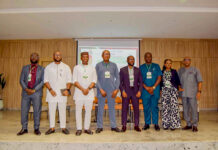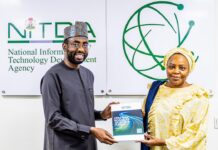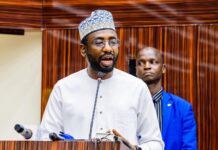The Federal Government has unveiled N-ATLAS, an open-source large language model designed to support Yoruba, Hausa, Igbo, and Nigerian-accented English.
Minister of Communications, Innovation, and Digital Economy, Dr Bosun Tijani, announced the launch in a statement on his X account, noting that the unveiling took place on the sidelines of the 80th United Nations General Assembly in New York.
According to Tijani, N-ATLAS was developed to put African voices at the centre of artificial intelligence. “Starting with Yoruba, Hausa, Igbo and Nigerian-accented English, N-ATLAS places Africa’s voices and diversity at the foundation of AI. This is the first step in a broader journey to make Africa a contributor and leader in shaping AI’s future,” he said.
The model’s documentation, published on Hugging Face, describes N-ATLAS as a multilingual and multimodal AI system featuring a speech-technology suite with language-specific automatic speech recognition (ASR) models. These capabilities enable transcription, accessibility, and local-language applications.
Potential use cases include chatbots that answer citizen questions about government services in local languages, transcription of radio, TV, and online videos into text with captions, and support for call centres and voice assistants by transcribing Nigerian-accented speech and generating automated responses. It can also summarise interviews conducted in local languages.
The project was built by the National Centre for Artificial Intelligence and Robotics in collaboration with Awarri Technologies and other partners under Nigeria’s language-AI initiative.
















